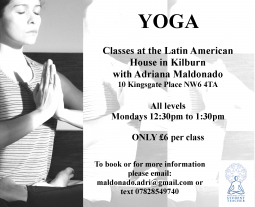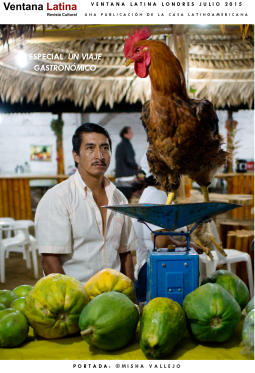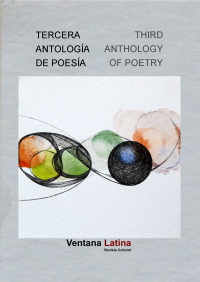“La vida no alcanza para llorar tantos muertos” (Life is not enough to weep for so many dead), de Consuelo Rivera-Fuentes
La vida no alcanza para llorar tantos muertos
(cita de Patricio Guzmán en Nostalgia de la Luz)
By Consuelo Rivera-Fuentes
Tenía el joven la pupila opaca
con una sola lágrima
que iba dejando un solo surco
plateado y húmedo
en su cara morena,
como la pajita de Gabriel Mistral
que anunciaba el inicio y el fin
del sollozo.
Esa yerba dura y punzante
se quedó clavada
en un horizonte
que sólo él veía.
Se quedó dormido
con la imagen de su madre y hermana
haciéndole señas desde
el fondo del Mar Mediterráneo.
Yo quería cerrar mis ojos
para que no me doliera tanto
el corazón incrustado
con la famosa pajita.
Cuando era niña
vi mi primer muerto
con curiosidad,
sin llanto,
y los ojos vacíos
del vecino
llenaron mis noches
de pesadillas mudas
en blanco y negro,
como las películas de Charlie Chaplin.
Y no lloré
Pero a medida que los inmigrantes
buscaban por dónde subirse a los camiones
en Calais
el espanto, la angustia y el gemido
se engarzaron en mi cuello y mi garganta.
Miradas desesperadas nos rompían los espejos
retrovisores
llenos de impotencia y rabia.
Una y otra vez la migra francesa
los sacaba de pequeñas esquinas
y cajas desde los camiones,
debajo de los coches y caravanas rodantes
colgados como murciélagos
saltaban los jóvenes
como muñecos porfiados.
Recibían golpes y patadas
y volvían a la carga
en el asfalto caliente del puerto
francés.
Llegamos por fin a Dover
y a sus acantilados de tiza y cal viva,
atrás quedaron los jóvenes africanos
soñando con una Inglaterra de castillos,
reinas y duques de papel.
Lloré y lloré,
y no me alcanzó nunca la vida,
y morí con los ojos secos.
Jey OH photographie
Life is not enough to weep for so many dead
By Consuelo Rivera-Fuentes
The young man stared at me
with opaque pupils,
with a single tear
that left only one silver and wet rut
on his brunette face,
as the tiny straw of Gabriel Mistral
that announces the start
and the end of the sob.
That hard shooting straw stayed fixed
to a horizon
that only he could see.
He fell asleep with the image of his mother and sister
calling him from the bottom of the Mediterranean Sea.
I wanted to close my eyes
so that my heart,
pierced by the famous straw,
didn’t hurt so much.
When I was a girl I observed my first dead
with curiosity,
without weeping,
and the neighbour’s empty eyes
filled my nights of silent nightmares
in black and white,
as Charlie Chaplin’s movies.
And I didn’t weep,
but as the immigrants sought
spaces to climb the lorries in Calais,
the horror, the anguish and the groaning
got stuck in my neck and my throat.
Desperate looks filled with helplessness
and anger broke our side mirrors.
Over and over again the French police
pulled the youngsters from small corners
and boxes from lorries,
from under cars and caravans.
Hanging like bats
the young men
jumped back up
like stubborn dolls.
They were punched and kicked
but they returned again and again
in the hot asphalt of the French port.
We finally arrived at Dover
with its cliffs of chalk and lime
leaving behind the young Africans
dreaming of England’s castles
queens and dukes of paper.
I wept and wept
but life was not enough
and I died with dry eyes.








 Copyright © 2024 Company no. 6720498 10 Kingsgate Place, London NW6 4TA, United Kingdom Tel: 020 7372 8653
Copyright © 2024 Company no. 6720498 10 Kingsgate Place, London NW6 4TA, United Kingdom Tel: 020 7372 8653